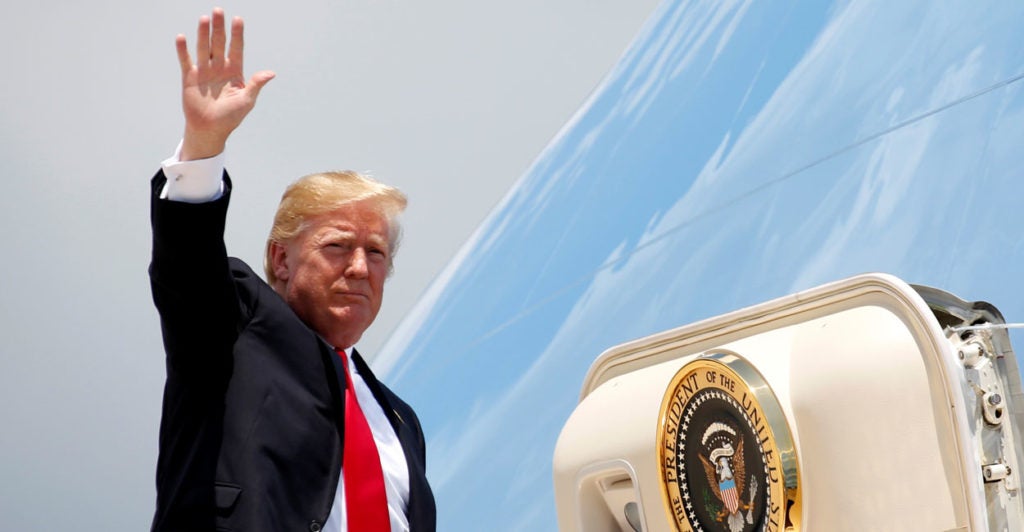
“If you know the enemy and know yourself, you need not fear the result of a hundred battles. If you know yourself but not the enemy, for every victory gained you will also suffer a defeat. If you know neither the enemy nor yourself, you will succumb in every battle.”—Sun Tzu, “The Art of War”
So how does President Donald Trump measure up to this ancient adage?
His supporters, and count me among them, believe he knows that Russian President Vladimir Putin is KGB and is simply taking his measure. Trump haters believe he’s an idiot and that Putin is playing him for a fool.
There’s no doubt Trump made a mess of his press conference in Finland, but let’s not get distracted from other critical truths about the way the Trump administration is dealing with Russia.
The predictable partisan media clatter utterly ignores the fact that Trump is being tough on Russia. His unconventional approach to foreign policy is working, and engaging a bad guy like Putin can be a good thing for the U.S. if Trump negotiates from a position of real strength.
To take a closer look at Trump and Putin, I asked Herman Pirchner, American Foreign Policy Council founder and CEO, to join me on “The Bill Walton Show.” Pirchner has visited Russia 70 times in the last four decades and has a keen grasp of Russia’s motives. He believes Trump’s decisions to bomb Syria, arm Ukraine, and abandon the Iran nuclear deal prove Trump is anything but Putin’s lapdog.
“To people that were worried about Trump’s statements, I think you have to balance them with the actions that he’s taken, which have been tough. You have to balance also with the people that he’s appointed. John Bolton, the national security adviser, is known to be tough on Russia, as is Mike Pompeo, the secretary of state, and Secretary of Defense James Mattis,” said Pirchner.
Trump’s critics haven’t offered up many policy disagreements on Russia. Instead, the hand-wringing and hysteria among foreign policy elites seems to boil down to this: Trump is not doing foreign policy in the same way they’ve done it for decades. Can’t you hear them saying, “It is simply not done that way. Trump just doesn’t get that it’s far better to fail the way we did, conventionally, than it is to succeed unconventionally.”
Of course Trump’s unconventional approach carries risks, but it’s also yielding unprecedented results.
“Business as usual isn’t going to cut it. We had a lot of presidents that had business as usual with North Korea. Did they get Kim to the table? They did not. We don’t know what the final outcome will be, but I note that we’ve seen a stoppage of nuclear testing in Korea. We’ve seen a stoppage of the missile launching,” said Pirchner.
But still, we’re dealing with Putin and every molecule of his being is KGB. He’s a shred and ruthless figure. The joke, if you can call it that, is that his main criticism of the mass-murderer Josef Stalin is that Stalin could have killed far fewer than 20 million of his people to maintain his reign of terror. “If you can kill a select hundred in gruesome fashion and publicize it, everybody else will be scared enough to get in line. And so far, that’s worked for Putin,” said Pirchner.
But Putin’s projection of power can be successfully countered. The Reagan era proved that American strength and American resolve are mighty bulwarks against Russian aggression. That’s the approach Trump must take into future negotiations with Putin and in making sure any agreements are honored.
“When you cut the deal, it’s very important to understand that Russia, given past history, may break it. You should confront Putin by saying, ‘We understand there may be a temptation for you to break it here or there. If you do, this is what’s going to happen, and happen quickly.’
“If he understands that we’re serious about it and we follow through, then I think he has a much better chance of staying,” said Pirchner.
Trump’s critics will tell you he is ceding the world stage to Putin and Russia is rising as the dominant player. That’s rubbish. Our economy is 10 times larger than Russia’s. So is our military spending. Russia is, as always, beset by seemingly intractable economic, demographic, and cultural problems. The oligarchs are stashing their money in other countries in case the system collapses. Putin’s own number is believed to be $50 to $100 billion.
“If you want to know what a country’s elite, and not just Russia, but any country’s elite, thinks about the future of their country, look what they do with their money, look what they do with their children. There’s practically nobody around Putin today that doesn’t have multiple passports, foreign bank accounts, probably have a relative sitting on their money in foreign countries.”
“There’s no rule of law that they feel comfortable will protect their assets or their physical well-being inside of Russia, and they’re not completely sure what the future of Russia as a country is. So, they take their wealth and their family outside of Russia so they have a place to land if things really get bad,” said Pirchner.
Trump and his foreign policy team know all this and how to use it to negotiate with Putin. Don’t be surprised if Trump disappoints his haters and we make some progress in our relationship with Russia.
